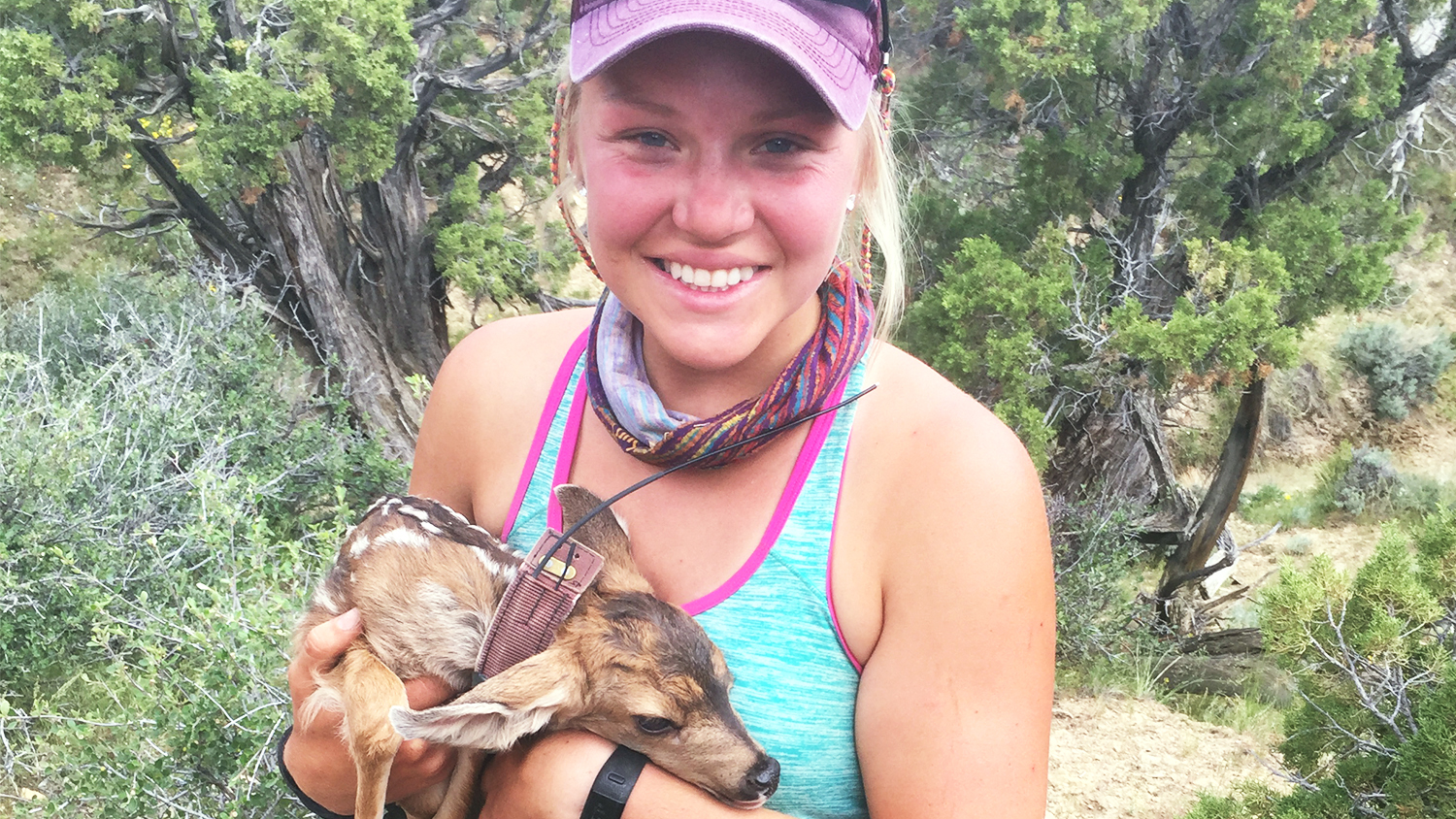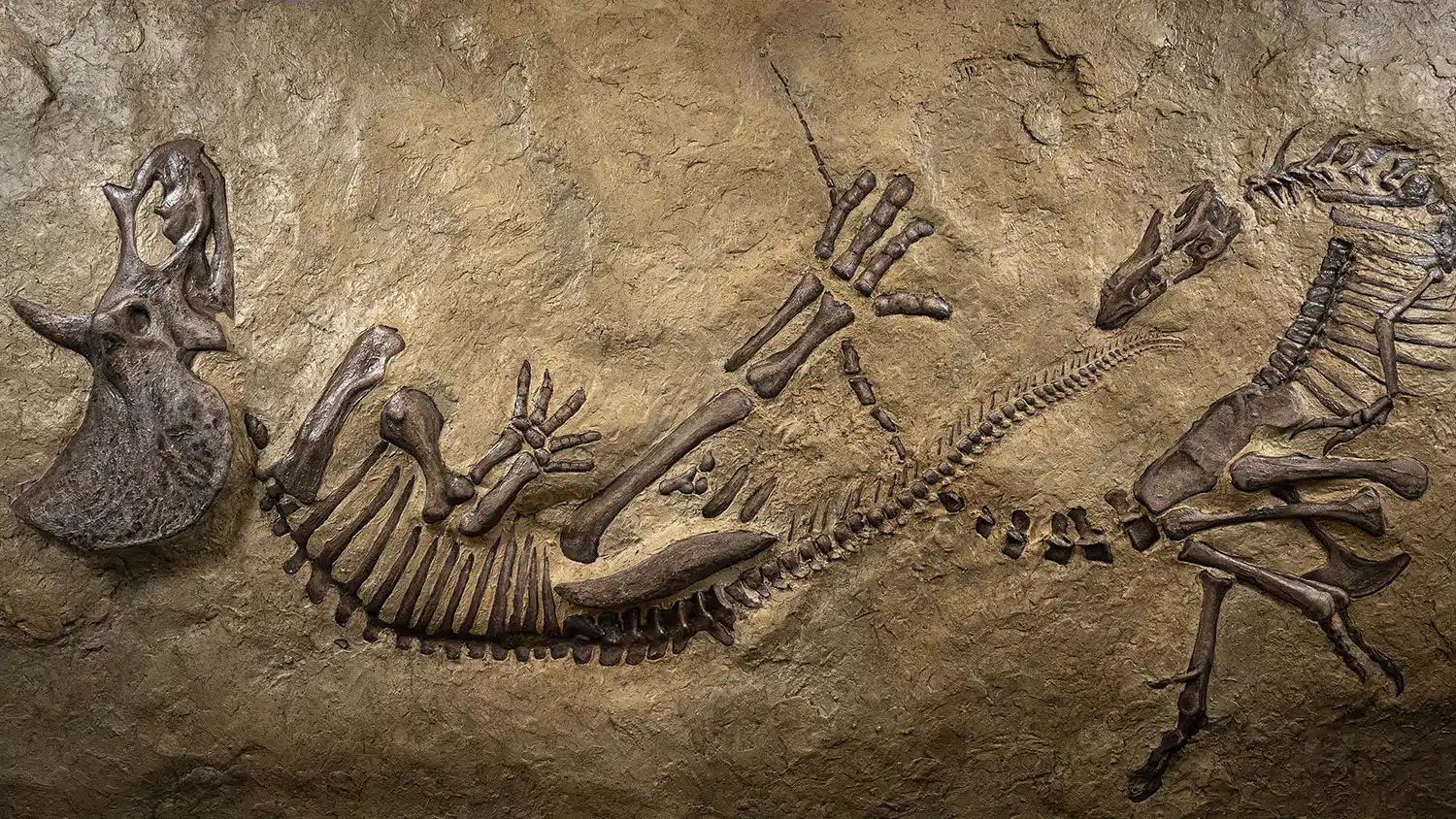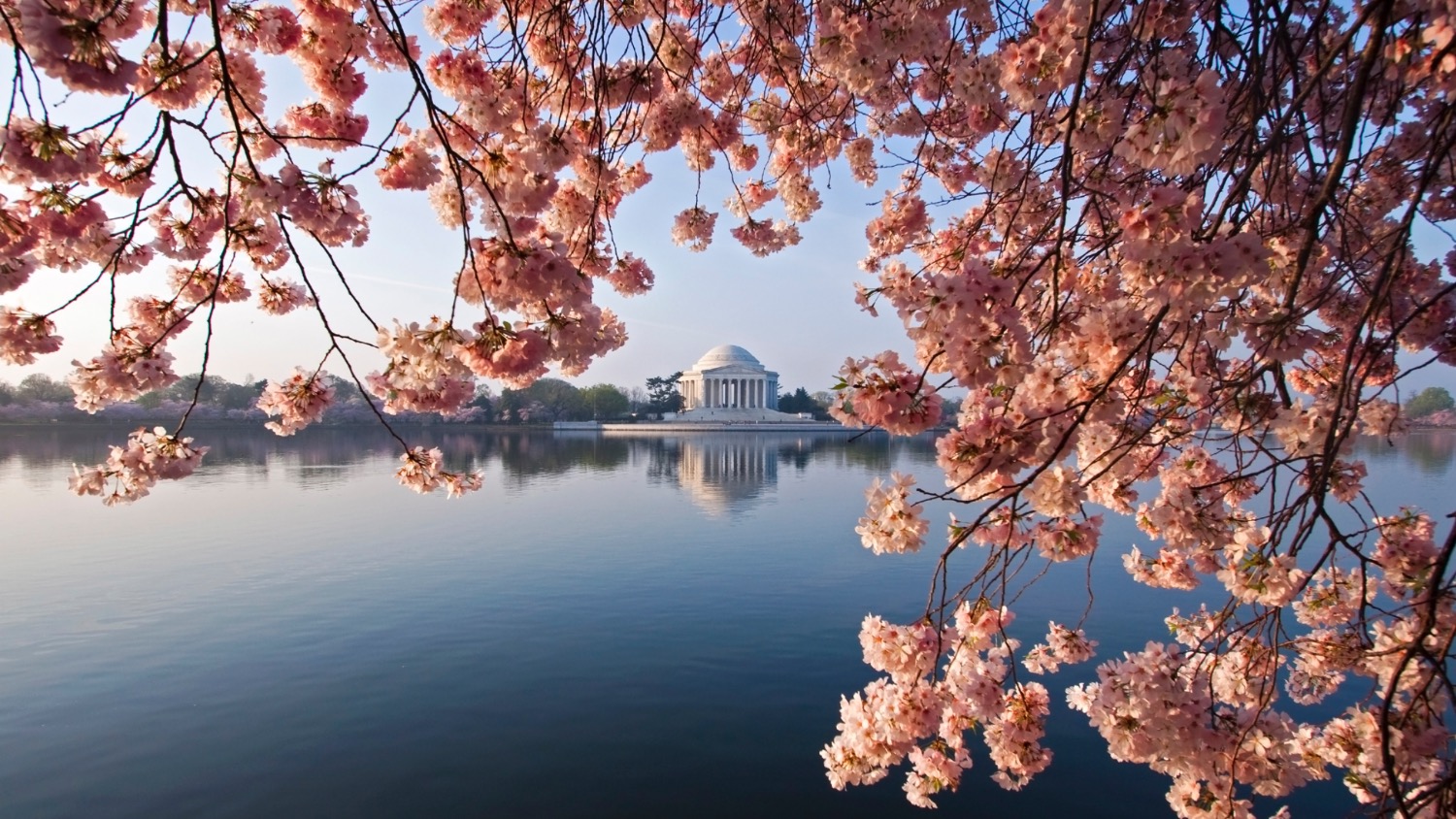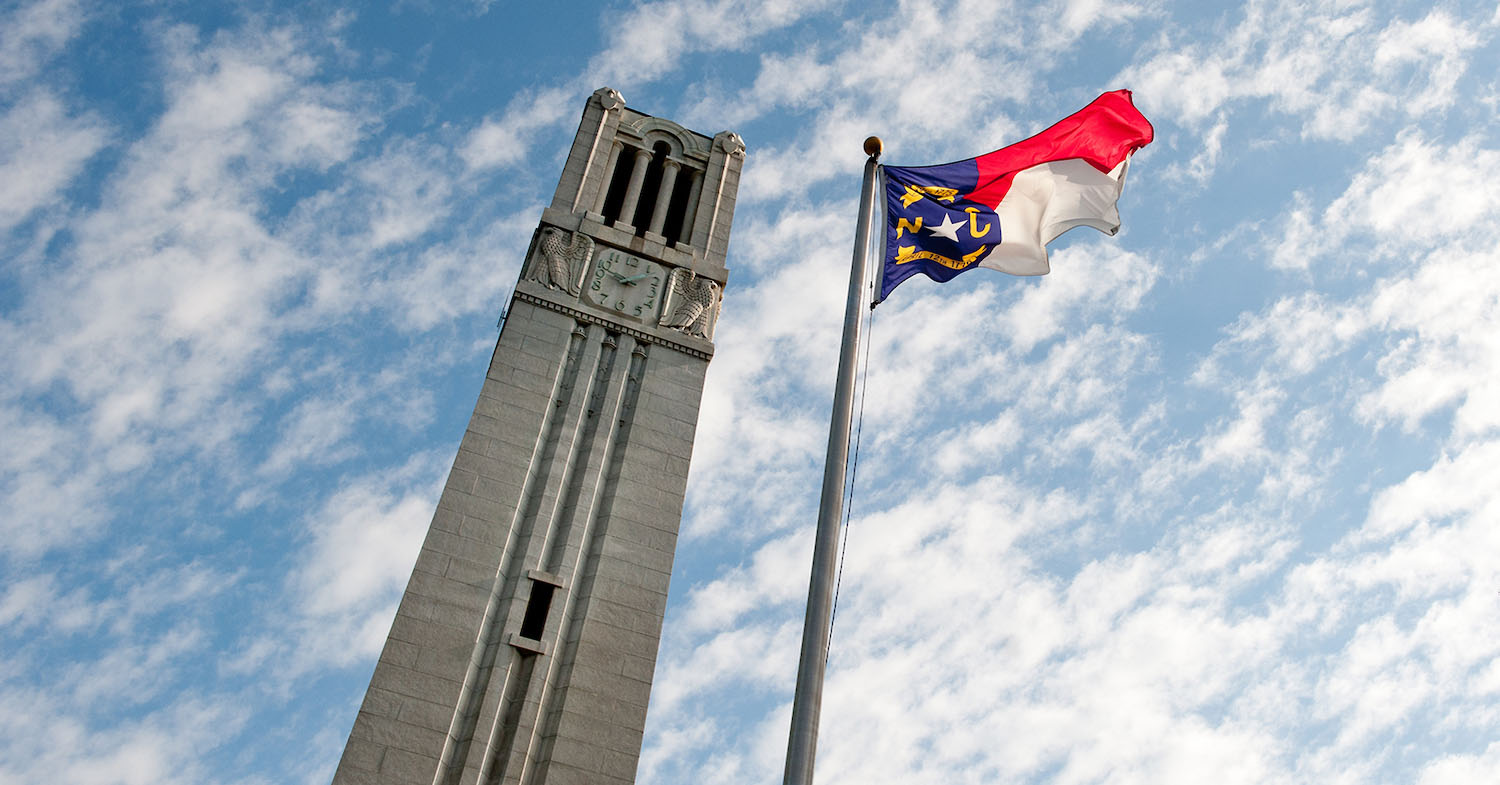Student Spotlight: Lindsay Clontz

Fisheries, Wildlife and Conservation Biology major Lindsay Clontz spent a summer in southwest Wyoming as a Deer Elk Ecology Research (DEER) project technician. The Goodnight Scholar and member of the Leopold Wildlife Club is no stranger to field work and enjoyed her time traipsing through the high-elevation desert ecosystem in search of deer and elk fawns and calves. Her experience, supported by the Ron and Dale Terry Student Assistance and Enrichment Fund, helped solidify her passion for wildlife conservation and working with big game species. Learn more about her hands-on summer internship and research.
Tell us about your experience.
The goal of the DEER Project is to determine why mule deer have been declining over the last decade. Meanwhile, elk populations in the same area have doubled. To cover several bases in hopes of answering the question of why, we looked at components such as survival of fawns and calves, nutrition, causes of mortality, etc. Summer field work, especially early in the summer, consisted of hiking 8-14 miles a day to find elk calves and mule deer fawns to collect data and place radio collars on them to track survival rates. We started off working in knee deep snow and transitioned throughout the summer to work in mid-90s temperatures while collecting fecal and vegetation samples and continued checking on fawns and calves.
How did this experience impact you?
I described my previous adventures as rainbows and butterflies and frolicking through the wildflowers because that is how I generally feel about the work I do as a wildlife biology intern. However, I want to approach this adventure from an additional perspective because I think it is important to describe how I not only learn from the wildlife related work that I love, but also how I learn valuable life skills and lessons from the hardships and challenges I face in my internship adventure. This internship was a lot of fun, but also gave me a better understanding of the diverse types of leadership. I also learned a lot about myself in the multiple moments that I was underneath a truck changing a flat tire or digging out a tire from a fender-deep mud hole or hiking up a mountain at 9 p.m. after a 15-hour day. However, even after all of that, this experience continued to solidify how much I love this field and what I do.
How has this experience prepared you for your future career?
This internship prepared me for my future career in a multitude of ways. First, it provided skills such as radio telemetry and data collection for elk and mule deer, which I would love to work with in my long-term career. Also, I learned a lot about professionalism and leadership; especially about the type of leader I want to be in my future career.
How did this opportunity enhance your experience as a College of Natural Resources student?
This experience broadened the horizon for me. The wildlife field is small compared to others and the connections I made will benefit me throughout my career. I feel as if every time I come home from an internship I get so much more out of my classes because I have hands-on experience that helps me better understand the books I am studying.
Why was participating in this experience important to you?
This experience was important to me because it provided so much applicable experience in the research area that I would like to continue in professionally through a master’s program and eventually as a biologist or management-related position.
What did you enjoy most about your experience?
I absolutely love working in the western United States in the wide-open spaces with large game species. It was really rewarding for me when I hiked 8-14 miles a day in rough terrain catching fawns and calves, taking measurements, drawing blood and equipping animals with radio collars. It was a crash course on studying vital rates of populations and I really enjoyed that.
What did you learn about yourself during your experience?
Throughout this experience, I have learned several things about myself. The most prominent thing that comes to mind is how important professionalism, communication and strong leadership are to me. Working from a field camp for three months can wear on just about anybody, but optimism and thorough communication are important to me. I continue to learn how passionate I am about management of game species as well.
Why would you recommend this experience to other students?
This experience has so much to offer to undergraduates. It is a cultural and self-learning experience just through the travels that accompany the job. In addition, it teaches you about western vegetation, game species, radio telemetry and so much more.
Any advice to incoming students thinking about your major, field of study or research focus?
This major and field of study is by far the best, but I am very biased. My advice to incoming students is to try a lot of different things, but most of all, be prepared to work hard, long hours in rough conditions in this field. To go along with that, make sure you truly love this field through experiences like the DEER technician internship because it is not just frolicking through wildflowers with wild animals. It involves working in physically and mentally challenging environments, and a strong passion for the work is what makes you embrace those work environments.
Have you completed any other internships, undergraduate research, study abroad or other hands-on experiences?
In addition to a technician on the DEER project, I also was a technician on a snowshoe hare project in Montana for the summer of 2016 and I participated in undergraduate research. I have learned many technical skills throughout my experiences such as trapping and animal handling techniques, but I have also learned about the research process, working with collaborators, writing manuscripts, and working with a crew in stressful conditions. Each of these extracurricular experiences have taught me so much about myself and pushed me outside of my comfort zone, which I think is very important.
What do you enjoy most about being a College of Natural Resources student?
College of Natural Resources (CNR) professors are so down-to-earth and accessible. I feel like I can always ask for help from my CNR professors and get a genuine response. Also, my peers are a wonderful resource. Lastly, I feel like there are more opportunities publicized and available within the CNR arena, and I feel like that is one reason why I have had so many awesome experiences in undergrad.
Anything else you would like to say about CNR?
I absolutely love CNR and my major, and I have no doubt in my mind that I am headed down the correct career path. I think that is an awesome feeling after hearing from so many of my undecided peers.


